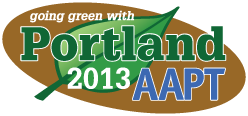Workshops
Did you know?
Portland is the 28th largest metropolitan area in the country, the fourth largest city on the West Coast, and the largest city in Oregon. — www.portlandalliance.com
Below is a current list of workshops planned for the 2013 AAPT Summer Meeting. All workshops will be held at Portland State Univeristy with the exception of W35 and W40 which will be held at Vernier Software & Technology. Some details below are subject to change.
Find out more and become a part of SM2013 on: Facebook| Twitter
Some photos courtesy of travelportland.com
Error in custom script module


